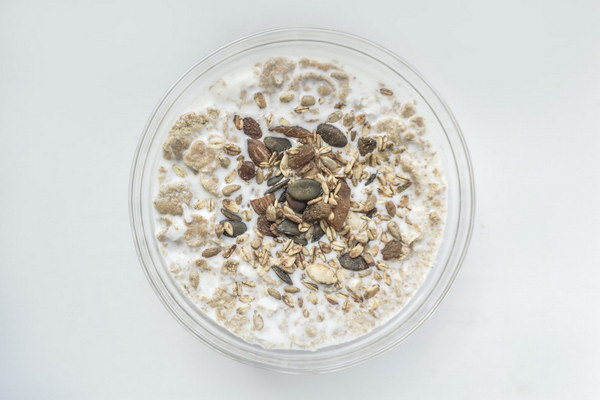Post-Lung Cancer A Comprehensive Guide to Body Care and Recovery
After being diagnosed with lung cancer, the journey to recovery can be a challenging one. The treatment, which may include surgery, chemotherapy, or radiation therapy, can leave the body weakened and susceptible to various complications. It is crucial for patients to pay close attention to their body's needs and adopt a comprehensive approach to post-treatment care. This article provides a detailed guide to body care and recovery after lung cancer.
1. Nutrition and Hydration
Proper nutrition and hydration are essential for a healthy recovery. Patients should focus on consuming a well-balanced diet rich in fruits, vegetables, whole grains, lean proteins, and healthy fats. This will help to boost the immune system, improve energy levels, and promote tissue repair.
a. High-protein foods: Include lean meats, fish, poultry, eggs, dairy, legumes, and nuts in your diet to ensure adequate protein intake, which is crucial for tissue repair and muscle strength.
b. Fruits and vegetables: Aim for a variety of colorful fruits and vegetables to obtain essential vitamins, minerals, and antioxidants that support the immune system and protect against cancer recurrence.
c. Whole grains: Incorporate whole grains such as brown rice, quinoa, and whole-grain breads to provide energy and essential nutrients.
d. Healthy fats: Consume sources of healthy fats, such as avocados, nuts, seeds, and olive oil, to support heart health and reduce inflammation.
2. Exercise and Physical Activity
Regular exercise can help improve strength, endurance, and overall quality of life. Patients should consult with their healthcare team before starting any exercise program to ensure it is safe and appropriate for their condition.

a. Low-impact exercises: Engage in low-impact exercises such as walking, swimming, or cycling to gradually increase strength and endurance without placing excessive stress on the body.
b. Strength training: Incorporate strength training exercises, such as using resistance bands or light weights, to improve muscle strength and reduce the risk of falls.
c. Flexibility and balance: Engage in stretching and balance exercises to improve flexibility, reduce stiffness, and prevent falls.
3. Mental Health and Emotional Support
Dealing with lung cancer and its treatment can be mentally and emotionally challenging. It is important to seek support from friends, family, or mental health professionals to cope with the stress and anxiety associated with the disease.
a. Support groups: Join a lung cancer support group to connect with others who are experiencing similar challenges and share information, advice, and emotional support.
b. Therapy: Consider seeking therapy, such as cognitive-behavioral therapy, to help manage anxiety, depression, and other emotional issues.
c. Mindfulness and relaxation techniques: Practice mindfulness, meditation, or deep-breathing exercises to reduce stress and promote relaxation.
4. Follow-Up Care and Monitoring
Regular follow-up appointments with healthcare providers are crucial to monitor progress, manage symptoms, and address any potential complications. Patients should keep track of their symptoms and report any changes to their healthcare team promptly.
a. Imaging studies: Schedule regular imaging studies, such as CT scans or X-rays, to monitor the response to treatment and detect any recurrence or progression.
b. Blood tests: Regular blood tests can help detect potential complications and monitor the overall health of the patient.
c. Symptom management: Work with healthcare providers to manage any symptoms, such as pain, fatigue, or shortness of breath, to improve quality of life.
5. Lifestyle Changes
Adopting healthy lifestyle changes can help reduce the risk of cancer recurrence and improve overall health.
a. Quit smoking: If a patient smoked before diagnosis, quitting smoking is essential to reduce the risk of recurrence and improve lung function.
b. Limit alcohol consumption: Reduce alcohol intake to a moderate level or avoid it altogether to minimize the risk of cancer recurrence.
c. Maintain a healthy weight: Maintain a healthy weight to reduce the risk of developing other health conditions, such as diabetes and heart disease.
In conclusion, post-lung cancer body care and recovery require a comprehensive approach that addresses physical, emotional, and psychological aspects. By focusing on nutrition, exercise, mental health, follow-up care, and lifestyle changes, patients can improve their chances of a successful recovery and lead a fulfilling life.









